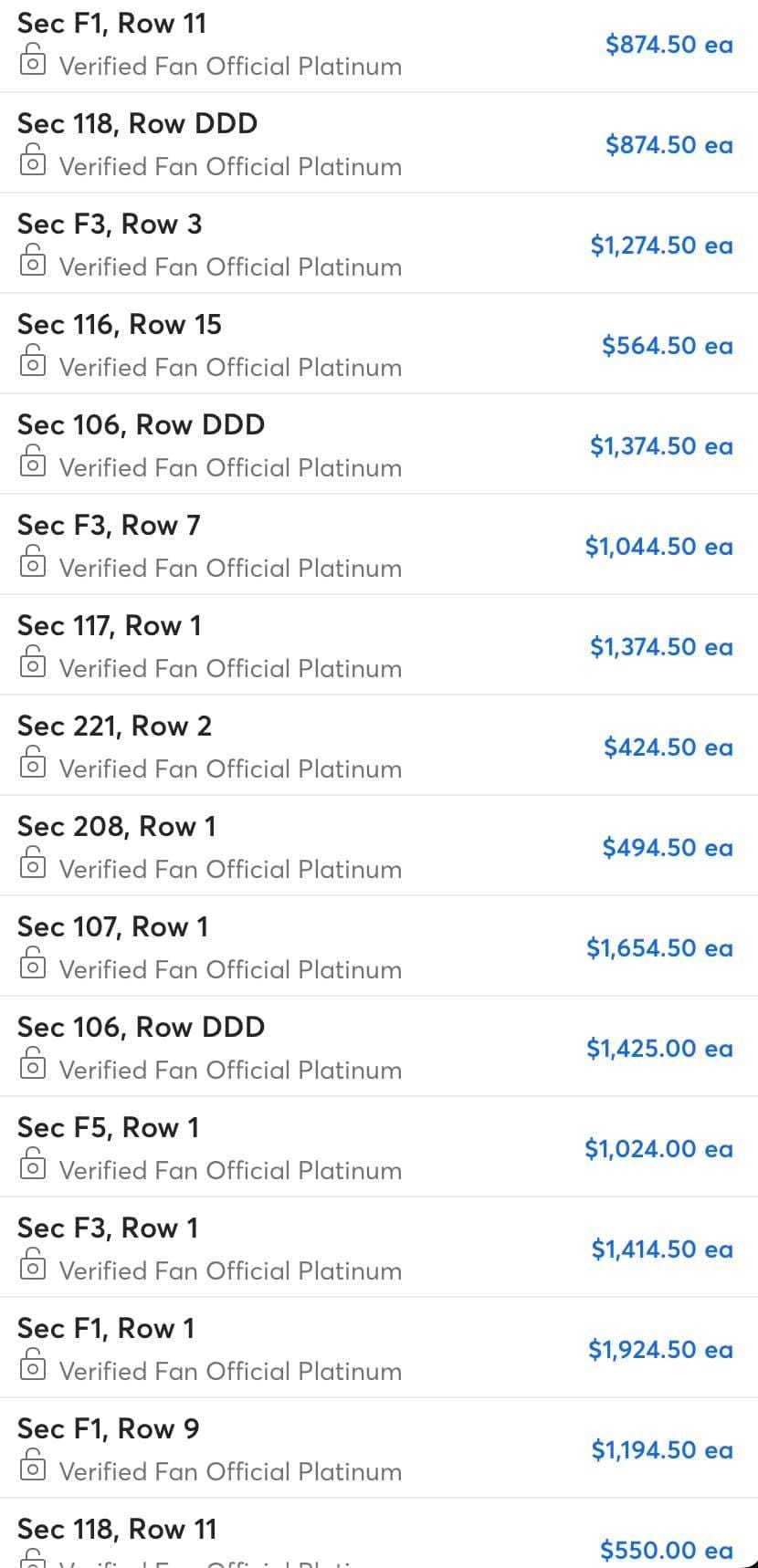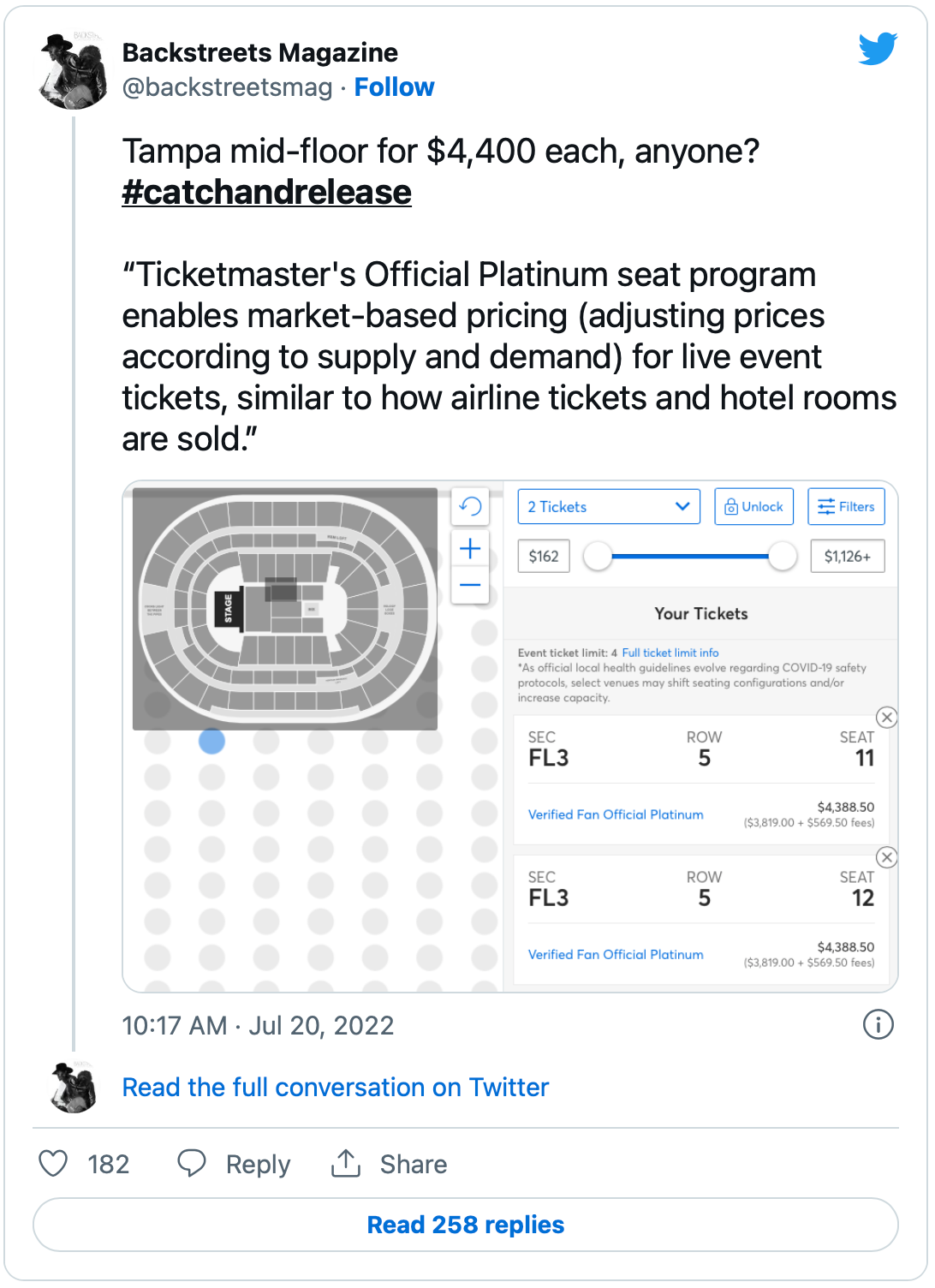Months ago, my wife decided that we needed SiriusXM radio in our primary vehicle. It was another of her wise decisions to address the instant gratification needs of our adult son, who has Down syndrome. He’s become a huge fan of metal music1, and has no patience whatsoever for DJ banter and/or commercials. We found a SiriusXM channel called “Ozzie’s Boneyard,” and it thoroughly entertains him with a minimum of DJ-type patter. (I made a spot-check, and at this moment they’re playing Black Sabbath’s After Forever. Ben would be absolutely satisfied.)
That’s not to say Ben is the only one benefiting from the focused programming of subscription radio. It didn’t take me long to find E Street Radio — the Bruce Springsteen channel devoted to all things Boss and Boss-adjacent — and turn that thing way, way up.
I don’t want to become an advertisement for SiriusXM, but there are a surprising amount of benefits derived from “musical immersion” of this sort.
First of all, your vehicle, when you are driving alone, is one of the last places remaining where you can turn that stuff up LOUD. (I don’t have to tell you that “Born in the USA” definitely gets better and better as it gets louder and louder).
Second, E Street Radio plays live versions of songs — and entire concerts — that feature an absolutely fascinating variety of sound mixes. Even though the producers undoubtedly have access to the very best board recordings of shows from the entire spectrum of Springsteen’s decades-long career, there are nuances revealed that are astounding to experience — sometimes Bruce’s guitar will be way up in the mix, for instance, and you hear him bear down during a specific lyric. Or, maybe Garry Tallent’s bass is accidentally and incidently out front, and you clearly hear him anchoring the whole mess during E Street instrumental “breakdowns,” providing a landing pad after the improv section and Bruce’s dramatic off-mic count-in returns the rest of the band to the melody.
So, even after almost five decades of Springsteen fandom (a bond that traversed all periods of my life — unlike, for instance, my pre-adolescent dalliance with KISS), I found it was still possible to find new excitement and additional depth in the music of The Boss.
On Tour
The above added fuel to my enthusiasm when Springsteen announced a 2023 US tour — his first with the E Street Band in six years — with my city on the schedule.
That’s a no-brainer — I’m in. It’s been a loooong pandemic, and I definitely need to get back out in the world. That’s not to mention the re-ignited passion I felt for Springsteen’s music after continued immersion via E Street Radio. I did all the Ticketmaster pre-registration procedures and marked my calendar for the “on-sale” day so I could get two tickets. They didn’t have to be great, as I’m an “in the building” sort of live music fan.
The story has been in the news long enough that everyone reading this knows what comes next. On ticket release day, after presenting my pre-registration credentials and enduring a surprisingly short wait in an online queue, I was presented with options like this:
Those “bargain” seats, by the way (in the $550 range) were behind the stage.
I’d heard about the ticket goofery resultant of Ticketmaster and their “dynamic pricing” scheme as tickets went on sale in other cities. For some reason, I thought things would be different in the frugal midwest.
Nope.
The New York Times (their headline reads “The Case of the $5,000 Springsteen Tickets”) reached out to the Springsteen organization, and — I’m not kidding — Springsteen’s manager, Jon Landau, uttered the following words:
“In pricing tickets for this tour, we looked carefully at what our peers have been doing. We chose prices that are lower than some and on par with others. Regardless of the commentary about a modest number of tickets costing $1,000 or more, our true average ticket price has been in the mid-$200 range. I believe that in today’s environment, that is a fair price to see someone universally regarded as among the very greatest artists of his generation.”
Guess what? A bunch of the “affordable” tickets bounced immediately to resale sites like Stubhub and — are you ready? — Ticketmaster’s own resale service. So - - do you want inflated secondary market tickets, or face value seats that are running $1,000 each?
Not a good look, Mr. Landau.
What the Ticketmaster scheme amounts to is this: instead of scalpers buying a bunch of tickets at face value and re-selling for huge amounts, Ticketmaster deploys an algorithm to adjust prices in real time in response to demand.
And, by the way, Ticketmaster has no competition.
As for the fans, a great many of them took it in stride and broke their piggy-banks open, obviously. Shows are selling out.
Others, however, were not so complacent.
Anyone who knows the history and content of Backstreets Magazine will understand the gravity of the above statement.
“Promoters and artist representatives set pricing strategy and price range parameters on all tickets, including dynamic and fixed price points,” a spokesperson for Ticketmaster told Rolling Stone. “Ticketmaster has created analytical tools that use historical and real-time data to help quantify supply and demand to determine prices. The promoters and artist representatives then determine the specific pricing for their shows.”
I wish I could say I made that up.
Not The Boss?
So, as of now — unless I score press credentials — I will forgo seeing Springsteen live in 2023. This is the year I had to buy a new laptop, etc.
And, I may be incredibly naive, but I hold none of this against Bruce Springsteen himself. Can money be a motive for a guy who sold his music catalog last year to Sony for an estimated $550 million?
“I don’t feel let down,” says Flynn McLean, who co-hosts a Springsteen podcast called “None But the Brave” told The Washington Post. “You know, I haven’t bought into the working-class hero thing in a long time.”
And, yes, McLean is making the investment and attending a show.
The same Washington Post article introduces us to Amy Demma, who says she hasn’t missed a Bruce show since 1980. She had a shot at some “not-so-great” tickets to a Boston shoe for — are you ready?
$18,000.
She turned them down. Thank all that is holy.
At the same time, Amy is going to three shows on the European leg of Springsteen’s tour, which involves flying to Dublin, staying for three concerts, and then flying back — and the total price tag is lower than the single Boston show ticket!
Still, Amy sees a building rift. “These are folks who feel so very, very betrayed. We were invited and embraced and told that we were an important part of what he was trying to do with his music. And now we feel shut out.”
An excellent, incisive editorial at NJ.com by Bobby Olivier (in New Jersey!) took no prisoners:
It is exceedingly clear that Bruce Springsteen does not care how much a given fan spends to see him play. If he did care, the rock icon who recently sold the rights to his publishing catalog for a cool $500 million — and whose concert tours typically rake in around $200 million at the box office — would refuse to work with Ticketmaster, finance the shows himself, buy permits to use unoccupied fields across America and set a ticket price he alone could control. He’d call it Brucestock or something and pocket considerably less from the fans who’ve supported him for half a century.
As for me, I may be a sentimentalist, but I can’t hold this against Bruce Springsteen.
I can very easily imagine Bruce slouching in a chair at a table with Landau and some other suits as they go through the logistics of a U.S. tour, before sighing and announcing as he gets up to leave, "Hey - just take care of it. Do management stuff. I'm trying to get in shape — I’m gonna be 73 years old!"
Who wants to micro-manage ticket sales?
Still, when people like me decide to wave off an opportunity to see Bruce Springsteen live, you are seeing the creation of a rift — one that is described very, very well by New Jersey’s Bobby Olivier in his editorial:
The haves and the have-nots become “people who go to Springsteen concerts” and “people who watch Springsteen concerts on YouTube.” And the divide between supporters will continue to grow, as some fans will accept that the unparalleled E Street Band live experience is no longer meant for them, while others will continue to act under the delusion that an artist living on his sprawling Colts Neck horse farm somehow remains a populist rocker with their interests at heart — truly his most brilliant disguise.
I’ll get in the car today to run errands, and there is no question that E Street Radio will be playing at dangerously high volume. I fear, however, that even though I remain a solid fan of Bruce Springsteen, I may start hearing some of his lyrics in a different context.
Brilliant disguise, indeed.
For a deep dive on the hell that is the live performance ticket market, here’s John Oliver:
I’m over a half-century old, and still hear “Rock and Roll All Night” EVERY. SINGLE. DAY.








